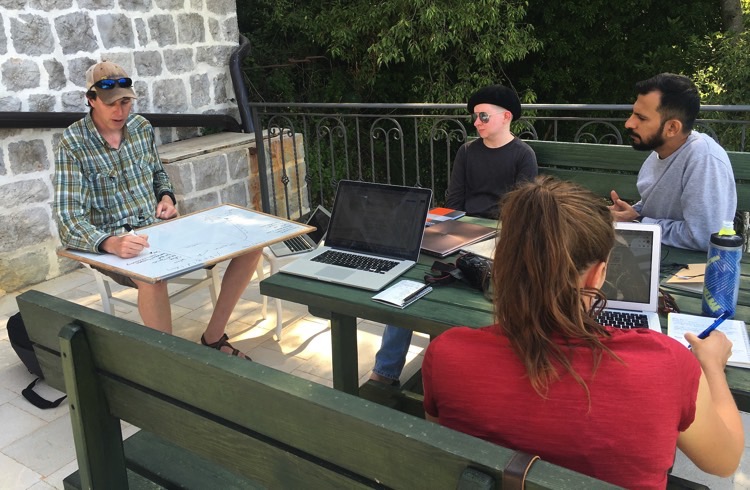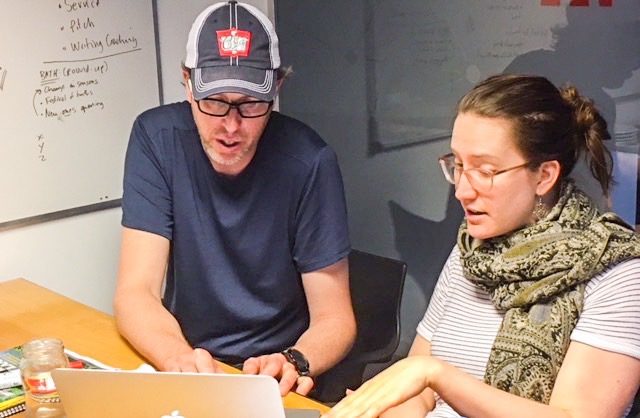Preparing to apply for our next Travel Writing Scholarship? Our scholarship mentor, Tim Neville shares his advice on what makes a captivating narrative.
 Photo © Andrew Stephen
Photo © Andrew Stephen
Each year thousands of you craft magnificent stories about your most memorable adventures for the World Nomads Travel Writing Scholarship, and each year I am amazed by how fantastic many of them are. Given the sheer volume, it’s only natural we get some not-so-fantastic submissions too. So how can you tell in which category yours might fall? What works and what doesn’t? How will you ever know?
“(Good) Writing isn't necessarily something instinctual that you’re born with,” says past winner Helen Glenny. “It can be learned and it’s somewhat formulaic, which is comforting.”
To recap, you’re being asked to write 700 words on one of three topics, and the prizes for the best applicants are awesome. Three winners will come with me to sunny Portugal for four days of travel writing workshops before casting off around the country on their own assignments. Overnight, you become a professional travel writer. As Norie Quintos, a former editor at National Geographic Traveler puts it, “This program is one of the best out there and not just because I’m a judge.”
To help your chances, first read the work of past winners and of those who made the shortlist. Then read them again. If you haven’t already downloaded the guide I wrote to travel writing, you may want to do that, too. It spells out the general mechanics of storytelling, including how to play with tension, characters, dialog and setting. Even after mastering these, this scholarship will demand a lot from you. 700 words is a terribly difficult length to master: too short to develop your idea as much as you’d probably like to, and yet long enough that you cannot skimp on details. This format is a great way for the judges to get a sense of your storytelling instincts.

And that’s where things get real. Before you write, think long and hard about your topic. This is the most important decision you can make. A compelling narrative starts with being unique. Do you really want to write about the time you ate something gross? Maybe, but it better be the grossest of gross with an ending that no one who has ever eaten anything gross saw coming. Remember, superlatives sell, not averageness, and that starts with your topic. The story you’re looking for is the one that makes everyone gasp or laugh or get all teary-eyed. It is multifaceted – funny but insightful; grim but hopeful, for example – and it makes your reader feel something. It’s the story that needs no embellishing.
For inspiration, look at past winner Alexander M.’s submission, Naked as I was Born, about being a transgender traveler visiting a Japanese bathhouse. It’s awkward but honest, empowering and full of confidence. Of course, that’s an impossible subject for most people to cover well, but compelling stories hide elsewhere, too. Máté Földi went to visit his girlfriend’s hometown in Georgia, a place she herself could never visit thanks to the complicated politics in the region. Sarah Puckett wrote about a trip to spread her father’s ashes. The key: all of these writers used unique experiences to highlight something bigger and more universal. Travel happens first in the mind.
Once you know what your story is really about, you then need to think about how you want to deliver it. In such a short format, you need to set your story up immediately – no “backing into it” as we say. Stories that have impressed us over the years have used different methods to accomplish the task. Claudia Crook used her story about making Thanksgiving dinner in Morocco to bridge a divide – a worthy topic – and structured it in a winning way. She started with a scene, backed up to explain the context of that scene, and then let the rest of the story play out while commenting on the significance of it. Kaushal Oza’s story, Cricket in the Valley, focused on a scene – he’s on a boat during a cricket match – and he paints that scene vividly while hinting at an emotion tied to the complicated relationship between India and Pakistan. He does this with nuance. He shows not tells. Having a fresh take on a big universal theme that’s packaged in just the right language adds an extra layer of oomph to your story, but in the end your submission needs to be entertaining.
The last step? Go through your storyline by line and make sure each sentence is as good as it can be. You have no room for extra words. Mind your pacing. Pick the best details. Everything should be tightly bound. Remember, nuance and restraint trump almost everything. As Ernest Hemingway once said, “Raisin bread is all right, but plain bread is better.”
Good luck and happy writing!
Related articles
Simple and flexible travel insurance
You can buy at home or while traveling, and claim online from anywhere in the world. With 150+ adventure activities covered and 24/7 emergency assistance.
Get a quote

No Comments